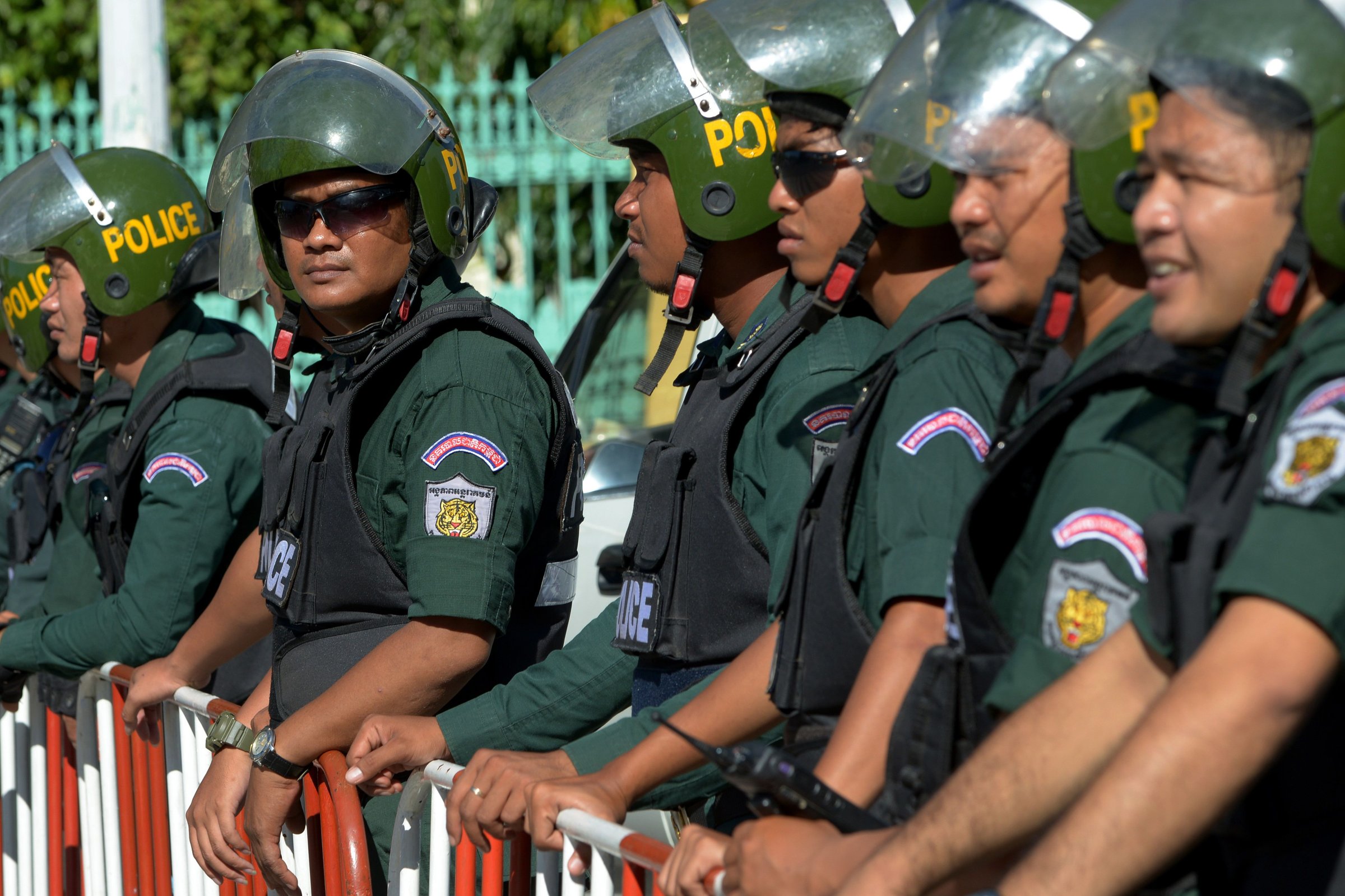
Cambodia has made its first arrest under a contentious lèse-majesté law that outlaws insulting the country’s monarchy, broadening the already extensive arsenal of repression at the disposal of the state.
Police in Kampong Thom province arrested Kheang Navy, a 50-year-old teacher, over a Facebook post that allegedly accused Cambodia’s king and other members of the royal family of colluding with the government to ban the the Cambodian National Rescue Party (CNRP), the main opposition political party, Reuters reports. Under the law, which came into force in February, he faces between one and five years in prison and a fine of up $2,500 — an enormous sum for most Cambodians.
The law, which has been roundly condemned by the United Nations and dozens of rights groups, empowers prosecutors to file charges against anyone suspected of insulting the monarchy, including institutions and media outlets.
Read more: The Sale of Cambodia’s Last Independent Newspaper Pushes Press Freedom Into Peril
“Lese majeste provisions are incompatible with Cambodia’s obligations under international human rights law, as they criminalize the legitimate exercise of freedom of speech,” said Rhona Smith, the U.N.’s Special Rapporteur on the human rights in Cambodia and David Kaye, UN Special Rapporteur on free expression, in a statement in February.
Cambodia’s Supreme Court dissolved the CNRP in November in a ruling that rights groups warned marked the death knell for democracy in the country. Prime Minister Hun Sen’s ruling Cambodian People’s Party (CPP) is expected to dominate nationwide elections in July.
Neighboring Thailand uses similar legislation to quash general political dissent and rights groups fear that that same could now happen in Cambodia.
In Thailand, over 100 lèse-majesté cases have been filed since a military junta, led by Gen. Prayuth Chan-ocha, took power in a 2014 coup, according to legal rights consortium FIDH. Those convicted under the law face up to 15 years in prison.
More Must-Reads from TIME
- Breaking Down the 2024 Election Calendar
- How Nayib Bukele’s ‘Iron Fist’ Has Transformed El Salvador
- What if Ultra-Processed Foods Aren’t as Bad as You Think?
- How Ukraine Beat Russia in the Battle of the Black Sea
- Long COVID Looks Different in Kids
- How Project 2025 Would Jeopardize Americans’ Health
- What a $129 Frying Pan Says About America’s Eating Habits
- The 32 Most Anticipated Books of Fall 2024
Write to Eli Meixler at eli.meixler@time.com